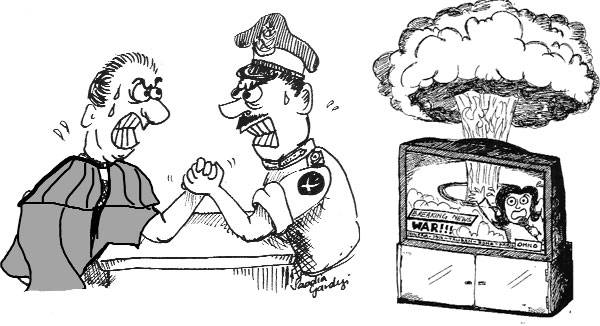
Road to nowhere
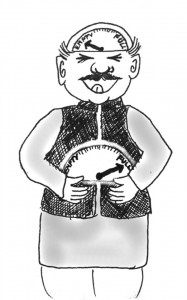
Sir,
It takes no rocket science to figure out how much petrol we consume and how much we need to store, provided those at the helm have the time to devote to these most basic tasks.
Defaults in payment by state institutions and business houses to PSO are a failure of governance. Our political leadership is responsible for this crisis, because it is he who selected these wizards and gave them responsibilities for which they either do not qualify, or they are not their priority, because they are too busy in other ventures. There are accepted international norms and ethics, such as Conflict of Interest rules, whose enforcement is essential for good governance. Regulatory control is one of the most vital constitutional functions of any government. Unfortunately regulation and public interest is bound to be a casualty if those appointed to regulate are traders for whom profit alone is the objective.
Public interest seems to be the lowest priority of every government that has been in power for the last thirty years. The net result of such callous abuse of power is visible in the collapse of state institutions. Energy shortage, collapse of public transport (air, rail or road), a dysfunctional health and education system, and failure to enforce the writ of law through strict deterrence, haunts 200 million citizens of Pakistan.
Greed for power and money is defiantly dominant among our policymakers. Terrorism, which threatens our national security today, is a self inflicted cancer, just like all other ills in this country. Solution lies solely in the enforcement of law and constitution, deliverance of justice, accountability and appointments strictly on merit, with no tolerance for bribery and crime.
Ali Malik,
Lahore.
Tax lax
Sir,
According to the transcript of the US State Department special briefing on Secretary of State John Kerry’s two day visit to Pakistan, among other things related to the strategic dialogue, a question was asked: “You guys have been pushing for about 10 years now about not collecting tax money”. This 10 year period spans the Pervez Musharraf/Shaukat Aziz tenure, the Asif Zardari government and now the government of the PML-N, headed by Nawaz Sharif. For any leadership with an iota of dignity, self respect or even shame, such lecturing by foreign leaders and journalists of donor countries should have yielded the desired results.
It is deterrence against violation of laws and tax evasion, and not the enactment of new laws or holding of seminars, that will help us achieve economic self sufficiency, enabling Pakistan the freedom to make better foreign and strategic security policies, which truly serve the long-term national interests of this country. The establishment and the ruling political elite of this country do not realize that without tax collection and writ of law, we will continue to be rebuked by foreign countries – in whose opinion, their taxpayers are being burdened to bridge the fiscal gap created by deliberate nonpayment of taxes by those in Pakistan who earn above a certain threshold.
Without tax collection, the state cannot fulfill its constitutional obligations to provide education, health, security of life and property, deliverance of justice, and provision of employment to citizens making them vulnerable to recruitment by extremists and criminals engaged in terrorism. Why should the state be held hostage to the insatiable greed of the elite, when the existing laws make it mandatory for them to pay taxes, instead of being given subsidies, tax reliefs and benefits that they have not earned.
Malik Tariq,
Lahore.
Right or wrong?
Sir,
According to HK Chesterton, to have a right to do a thing is not at all the same as to be right in doing it. The current global situation can be summed up in the above given quotation.
Do you have a right to shout fire in a crowded place? You may argue that you do, but it may not be ethical. Similarly, if you have a pen and you and make cartoons, you can make cartoons of anyone, but morally it is not right to hurt the feelings of millions of people.
So, after the attack on the office of Charlie Hebdo, a satirical weekly in Paris, the entire world joined hands against religious extremism, dividing the world into two groups: either you are with Charlie Hebdo, or with extremist Muslims who murder people.
In the recent days, the west has tried to identify Muslims as terrorists, blaming an entire group of people for the actions of some Muslims.
Islam does not encourage its followers to insult any religion. But some in the west believe that freedom of expression lies in insulting and mocking other religions, and hurting feelings of millions of people. That is why Charlie Hebdo decided to publish the same controversial cartoons yet again. It is fine to disagree with the beliefs of individuals but making fun of their core identities is really not a good idea. I think it is high time for the west to understand that everything they have the right to do is not always the right thing to do. Such acts only strengthen the narrative of the extremists.
Laila Tariq,
Lahore.
No answers
Sir,
When this country was made, it was made in the name of peace, in the name of Islam, in the name of freedom. The colour designated to this land – green – signified peace. But we did not realize the gradual transition of this green into red. Why did we not see? Why did we let this happen? Why did we let this land be tainted with blood? Why is it that a Pakistani’s blood is so cheap? A bullet here, a blast there and we die. Not one person, not a hundred, but tens of thousands. And all the government does is announce a three day mourning.
But we do not learn any lessons, we just forget. Why don’t we do anything? Why don’t we play our part in saving this country. There are so many questions, but no answers. Every night, before I go to sleep, I ask myself what my entire day was about? Why was it all about myself? Why did I only pay attention to my own little problems? We tend to forget our goal in life is not only to focus on ourselves, not only to study, earn and live for ourselves. This country needs us, these people, these victims of terror need us.
So lets us make an effort. Let us save this land. Let us start organizations, let us donate, let us spend time in orphanages, let us teach kids who do not go to school. Let us colour this land green again.
Zainab Mansoor,
Lahore.
Tragedies abound
Sir,
Tragedies are common in Pakistan, but the tragedy that struck Peshawar on December 16 has no parallel in the country’s history. Never ever before, anywhere in the world, has such a huge number of innocent children been ruthlessly killed. On the morning of December 16, when the shocking news of the dastardly terror attack on the Army Public School Peshawar spread like wild fire across the length and breadth of the country, it tore the hearts and sent tears rolling down the cheeks of not only the aggrieved parents of the children who lost their valuable lives in the attack, but every parent across the world.
However, the good that this tragic incident has done is that it has brought people belonging to every segment of the Pakistani society together, and the government, the opposition, the army and the people are on the same page on the issue of terrorism. It is unfortunate though that this unity has come at a very high price.
The aftermath of the Peshawar carnage has led to the creation of military courts with the consensus of all political parties, barring of course a few exceptions. The National Assembly and the Senate of Pakistan unanimously passed the 21st Constitutional Amendment Bill on January 6, by more than a two-thirds majority, thus paving way for the constitution of military courts to conduct speedy trial of terrorists. Both the houses also amended the Pakistan Army Act of 1952 extending the jurisdiction of military courts to terrorists.
One now only hopes and prays that the vital decision bears desirable results, and Pakistan is rid of the menace of terrorism for all times to come.
M Fazal Elahi,
Islamabad.
Go girls
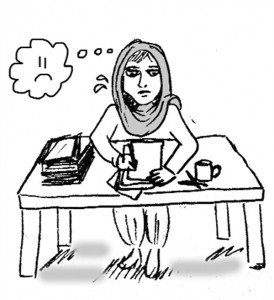
Sir,
Women are often denied the right set of circumstances for education in our society. Despite any gains we have made, girls continue to suffer severe disadvantages in our education system, and these limitations lead to a decreased family income, put the girls at risk, leave little avenues for socialization, and hurt our society’s progress in the long run.
Women have to play three roles in our society, and everyone expects them to fulfill these responsibilities in the best manner possible. They have to be mothers, daughters, and wives. Even for these traditional roles, they need education.
But women’s access to education has been accepted as a fundamental right the world over. It is believed that women’s education brings economic progress to poor communities, and impacts the health and economic future of a community as well as a nation.
Educated women can make more effective decisions for their families, and the skills they develop help improve the quality of their lives. They are aware of their rights and cannot be easily exploited. And that is the kind of strong, independent women that our society needs.
Anna Abid,
Lahore.
Law and order
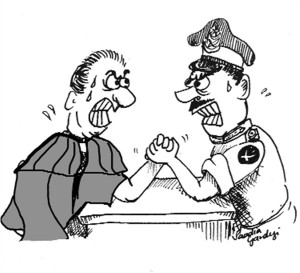
Sir,
A few days ago, over 1.5 million (apparently spontaneously, very peaceful, organized and totally non-destructive) protestors converged in Paris to demonstrate solidarity with those who were massacred in the city but also to express revulsion against murderous settlement of disputes.
Back in Pakistan, TuQ and Imran Khan generated their own versions of protests for their very noble causes. For months some few thousand dancing faithful followers converged to party and provide the nation with great entertainment and diversion. Then on Benazir Bhutto’s anniversary Asif Zardari regaled the crowds with his tilting at the unseen ‘tomcat.’ The mood of these rambunctious crowds contrasts sharply with that of the more recent, very orderly, highly attentive and sombrely seated devotees of our British leader. The Karachi shutdown to commemorate the people of his party was also more effective than IK’s multiple disruptive closures. And recently, protestors of a host of religious parties created variable panic and havoc across the country.
Compare the displays of protest, power, public interest and concern for these undoubtedly noble causes with the dwindling response of the nation to the children’s massacre in Peshawar and the even more flagging interest in acknowledging and confronting the real problems besetting Pakistan: wilful neglect of socioeconomic problems that create a civic sense and culture, the nurture of ethnic and religious bigotry, and the deliberate cultivation of terror assets with very selective punishment for crimes. All of these stem from a total absence of law and order. Although the issue of governmental responsibility in implementing the law was recently raised by the Supreme Court, it is a sad testament to our history that along with our military and civilian executives our higher courts contributed considerably to our unhappy saga. Now compare our penchant for diverse, divisive and relatively pointless protests on everything under the sun, and our government’s continued ineptness in seizing the opportunity to turn Pakistan around, with the million plus citizens’ march in France and the crackdown on terror outfits across Europe. Hardly surprising we cannot get our act in order.
The need of the hour is for the people mobilising talents of our political leaders and some of the less bigoted religious parties (if they exist) to be harnessed to and coordinated with the elements of genuinely concerned Pakistanis that remain. The target must be clear: the rule of law must be established and Mr Jinnah’s nation, that my father and many others came to and for which many millions more were displaced or died, rebuilt and restored to what was envisaged. Can they – these leaders, the military, and the judiciary – now get together and generate 5 to 10 million people (still a miniscule number in such an overpopulated nation) to join forces for the survival of our country? Or, will they, and we, remain grinding our individual axes as Pakistan goes the self-destructive way like much of the world’s 58 Muslim states?
Dr Mervyn Hosein,
Karachi.
Cat call
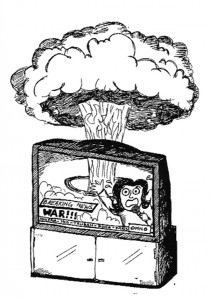
Sir,
Man is the cruelest animal, according to Friedrich Nietzsche, an eminent German philosopher. His quote does ring true in the modern era where ruthless crimes rendered by man qualify as pinnacle of cruelty while kind deeds rendered by wild animals qualify as epitome of humanity.
Dwelling in a world full of treachery and suffering, as a grave repercussion of man’s evil actions, one cannot help admiring the act of kindness displayed by a Russian cat Masha, who has rightfully garnered a lot of appreciation for saving an abandoned baby by warming him in her furs when the temperature was well below zero degrees. The cat has done more than saving the baby’s life; it has shed off the facades of love and kindness that man proudly boasts of. It has compelled us to ponder over our notions that man may be the crown of creations. He may possess a higher degree of rational cognition than animals, but what use is that cognition when it is not employed for a noble cause and instead is sapped in the scheming of baneful deeds.
The act of kindness rendered by Masha needs to be contrasted with the act of ruthlessness rendered by man, by those who claim to be human beings. One instance is the horrendous killing of little innocent children in the terrorist attack on the Army Public School in Peshawar.
Only a couple of days ago, the body of a five year old boy was found hanging in mosque after he was physically abused. Such cases of violence against children are not rare in Pakistan. The pinching fact is that effective policy measures are not taken to curb them, and even if they are, they fail to be executed effectively.
Our leader need to take charge and protect our children, instead of arguing over petty political differences. I seriously wonder if the responses of our leaders would have been the same had their own children been susceptible to such dangers.
We can compromise on everything but one thing that is well beyond the limits of compromise for every Pakistani, for every human in fact, is any threat to our children’s lives and well being.
We need to learn from the heartening display of humanity by Masha the cat. There is a need for all human beings to introspect and to reassess their failures, consequently bettering not only their own lives but also the live of those around them.
Marria Qibtia Sikandar Nagra,
Lahore.

